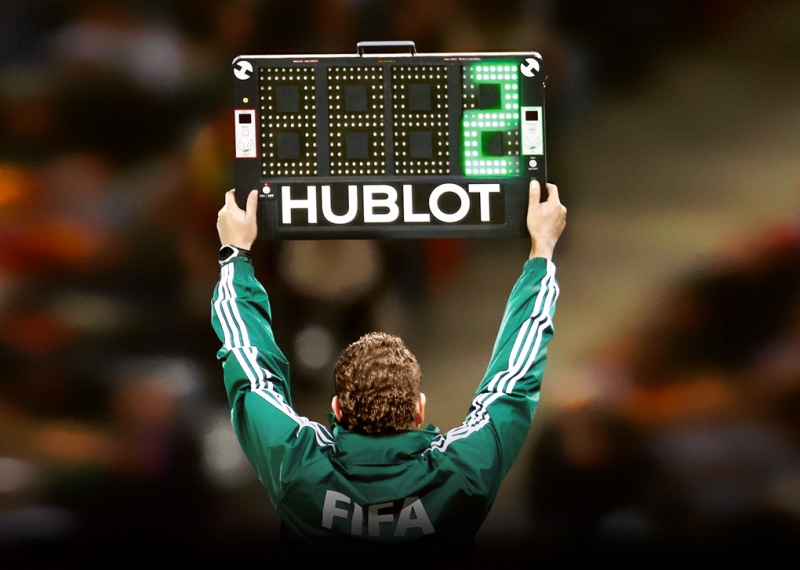
The difference between stoppage time and extra time is that stoppage time is time the referee adds onto the end of a half as an allowance for time lost and extra time is an extra period of play added onto the end of a game if the scores are tied but the game needs a winner. Extra Time or ET is extra periods of play in a soccer match that are used to resolve ties after both halves plus stoppage time.

Yet it was the scenes in extra time.
Stoppage time vs extra time. The difference between stoppage time and extra time is that stoppage time is time the referee adds onto the end of a half as an allowance for time lost and extra time is an extra period of play added onto the end of a game if the scores are tied but the game needs a winner. Stoppage time often referred to as injury time is the time in a soccer match that the referee adds on at the end of each half to accomodate for stoppages that halted play during the match. Extra Time or ET is extra periods of play in a soccer match that are used to resolve ties after both halves plus stoppage time.
Referees can choose to add time in soccer for several reasons. Stoppage time or extra time is usually around two to five minutes and it is added at the end of the game after the full 90 minutes have been played. This is because during a match numerous things can happen that can take time away from playing.
Any events that the referee deems to be taking up extra stoppage time can be timed and added to stoppage time. FIFAs further instructions on Law 7 add a little bit of precision. That means to account for the unforeseen stoppages in play a few minutes are added at the end of each half.
Longer stretches are usually tacked on to the end. There was only one match that actually had more time added than our stoppage time estimate called for. Our calculation estimated 856 as an accurate amount of added time but.
Extra time is different to injury time. Injury time is additional minutes added to the end of the match to compensate for stoppages in play where the clock keeps running often caused by injuries. It is also called stoppage time.
Extra time occurs in knock-out games where the score is level but the fixture needs to be decided on that evening. As a general rule the first half will consist of somewhere between no stoppage time to two minutes whereas the second will often see a minimum of four added minutes. The referee decides how much time is added on but the fourth official reveals it.
Referees can add more time in the midst of stoppage time on the fly if something occurs that calls for it The origins of stoppage time are up for debate. One widely cited but possibly. The time allowed for stoppages at the end of normal time was indicated as a minimum of four minutes.
However during the playing of time allowed for stoppages additional time was lost including. With the Royals winning 4-3 as the 90 minutes drew to a close the fourth official signalled that at least four minutes of stoppage time would be played. Some of these stoppages in play will result in more extra time being decided than others.
To gain a better idea of how much time is added for each stoppage in play we encourage you to read on. History of Stoppage Time in Soccer. The origination of stoppage time also known as injury time in soccer goes back to an 1891 match between Stoke City.
The keeper was fortunate in first-half stoppage time when a Campbell header came off the foot of his left-hand post He was ludicrously cautioned in stoppage time for time-wasting Then deep into stoppage time Smith attempted to be too clever with the ball midway inside his own half. During those 32 World Cup matches an average of 6 minutes and 59 seconds was added at the end of the halves. Using FIFAs own guidance on the matter FiveThirtyEight believed that the actual average time that should have been added was 13 minutes and 10 seconds.
Stoppage time then was roughly half what it actually should have been. Typically this extra time falls between one and six minutes. The number of minutes added to the end of each half is determined by the referee.
The end of stoppage time is signaled by the main referee blowing his or her whistle. The purpose of this rule is to stop a team from protecting a. Average Allotted Stoppage Time.
In all the data included 1884 matches in which the home team led by a goal entering stoppage time and 1326 matches in. But the referee can add stoppage time within stoppage time. And even when all that added time ostensibly runs out the game still may not be over or in soccer terminology reached full time.
Shameful scenes as five players sent off in stoppage time during PSG vs Marseille. Actualizado 14092020 - 0104. Yet it was the scenes in extra time.
In soccer and some other sports stoppage time is the period of time that is added to. Meaning pronunciation translations and examples.